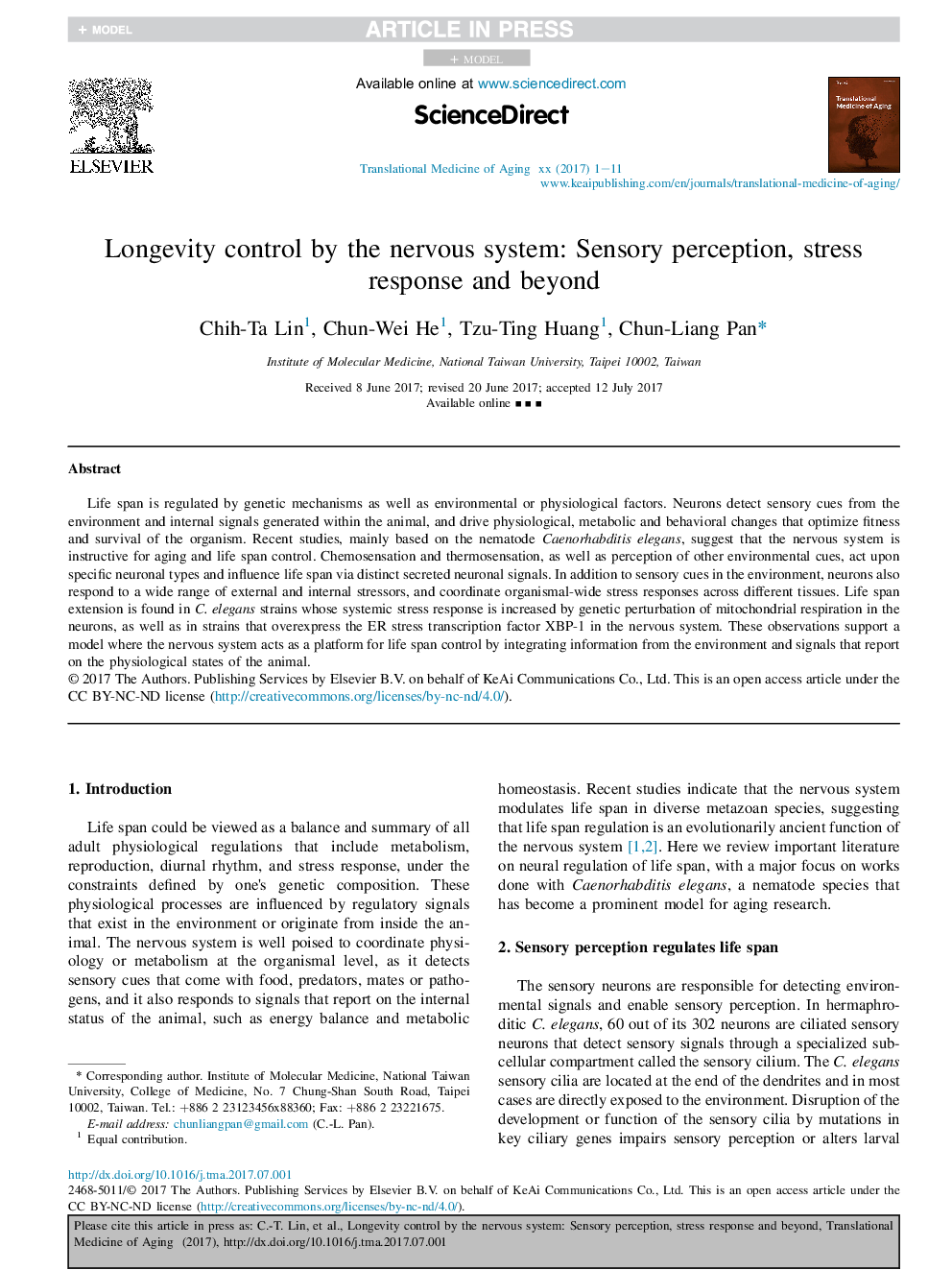| کد مقاله | کد نشریه | سال انتشار | مقاله انگلیسی | نسخه تمام متن |
|---|---|---|---|---|
| 8920121 | 1643336 | 2017 | 11 صفحه PDF | دانلود رایگان |
عنوان انگلیسی مقاله ISI
Longevity control by the nervous system: Sensory perception, stress response and beyond
ترجمه فارسی عنوان
کنترل طول عمر توسط سیستم عصبی: ادراک حسی، پاسخ استرس و فراتر از آن
دانلود مقاله + سفارش ترجمه
دانلود مقاله ISI انگلیسی
رایگان برای ایرانیان
موضوعات مرتبط
علوم زیستی و بیوفناوری
بیوشیمی، ژنتیک و زیست شناسی مولکولی
سالمندی
چکیده انگلیسی
Life span is regulated by genetic mechanisms as well as environmental or physiological factors. Neurons detect sensory cues from the environment and internal signals generated within the animal, and drive physiological, metabolic and behavioral changes that optimize fitness and survival of the organism. Recent studies, mainly based on the nematode Caenorhabditis elegans, suggest that the nervous system is instructive for aging and life span control. Chemosensation and thermosensation, as well as perception of other environmental cues, act upon specific neuronal types and influence life span via distinct secreted neuronal signals. In addition to sensory cues in the environment, neurons also respond to a wide range of external and internal stressors, and coordinate organismal-wide stress responses across different tissues. Life span extension is found in C. elegans strains whose systemic stress response is increased by genetic perturbation of mitochondrial respiration in the neurons, as well as in strains that overexpress the ER stress transcription factor XBP-1 in the nervous system. These observations support a model where the nervous system acts as a platform for life span control by integrating information from the environment and signals that report on the physiological states of the animal.
ناشر
Database: Elsevier - ScienceDirect (ساینس دایرکت)
Journal: Translational Medicine of Aging - Volume 1, October 2017, Pages 41-51
Journal: Translational Medicine of Aging - Volume 1, October 2017, Pages 41-51
نویسندگان
Chih-Ta Lin, Chun-Wei He, Tzu-Ting Huang, Chun-Liang Pan,
